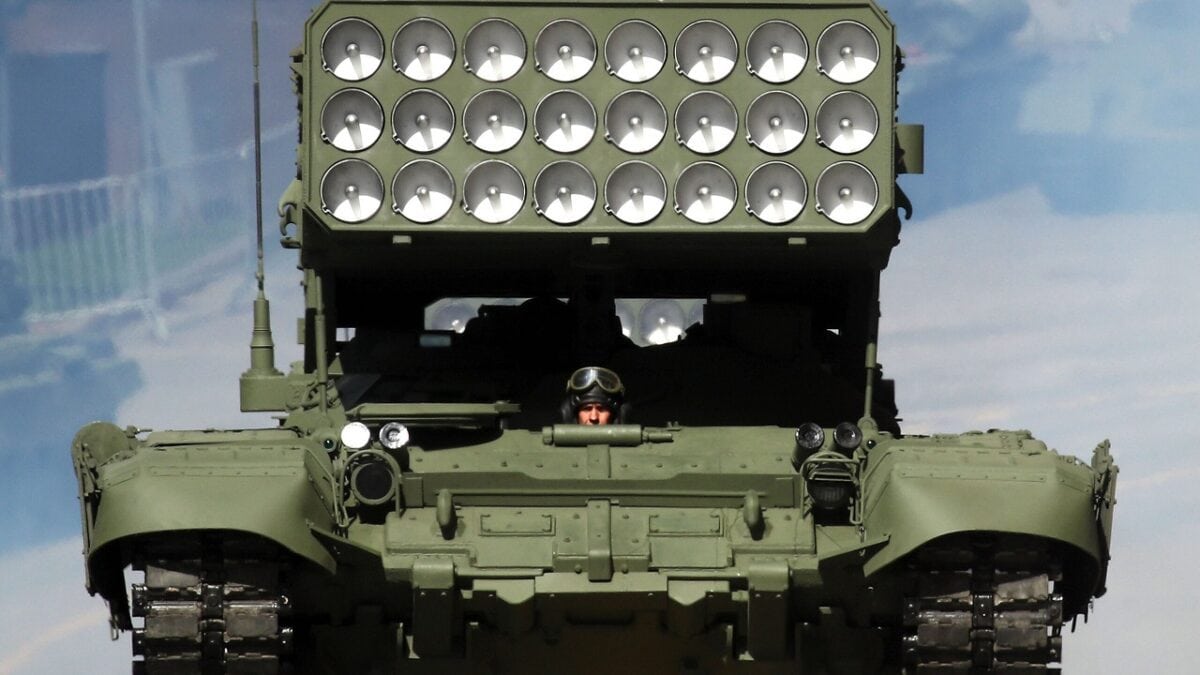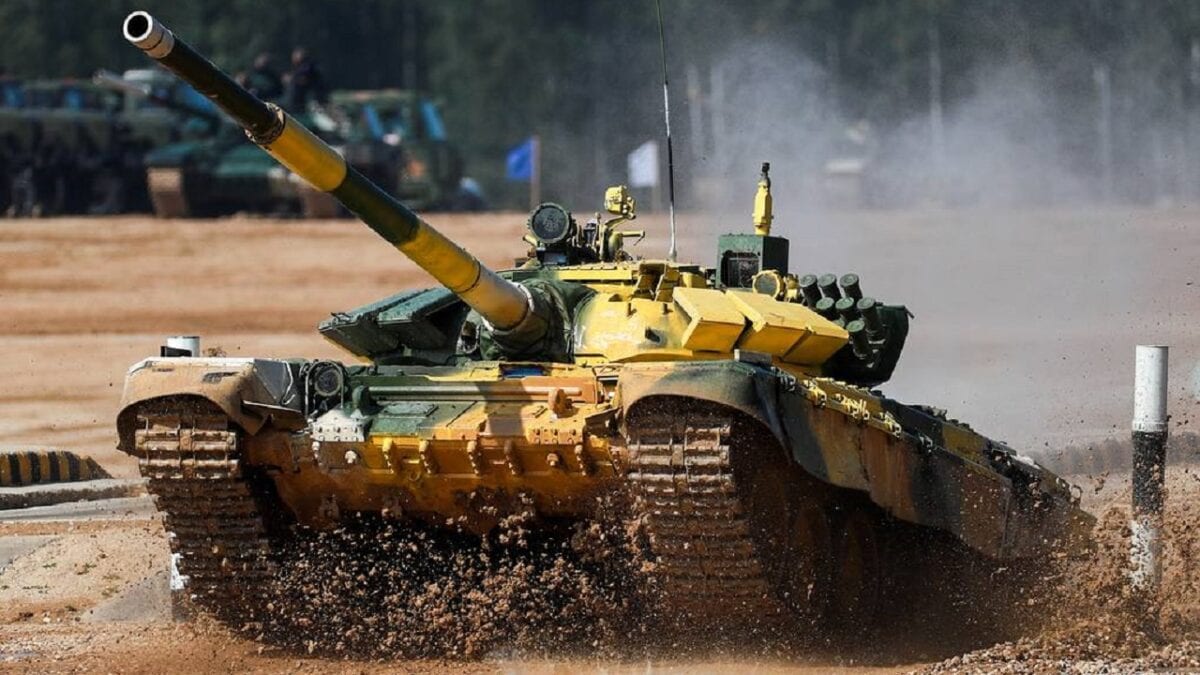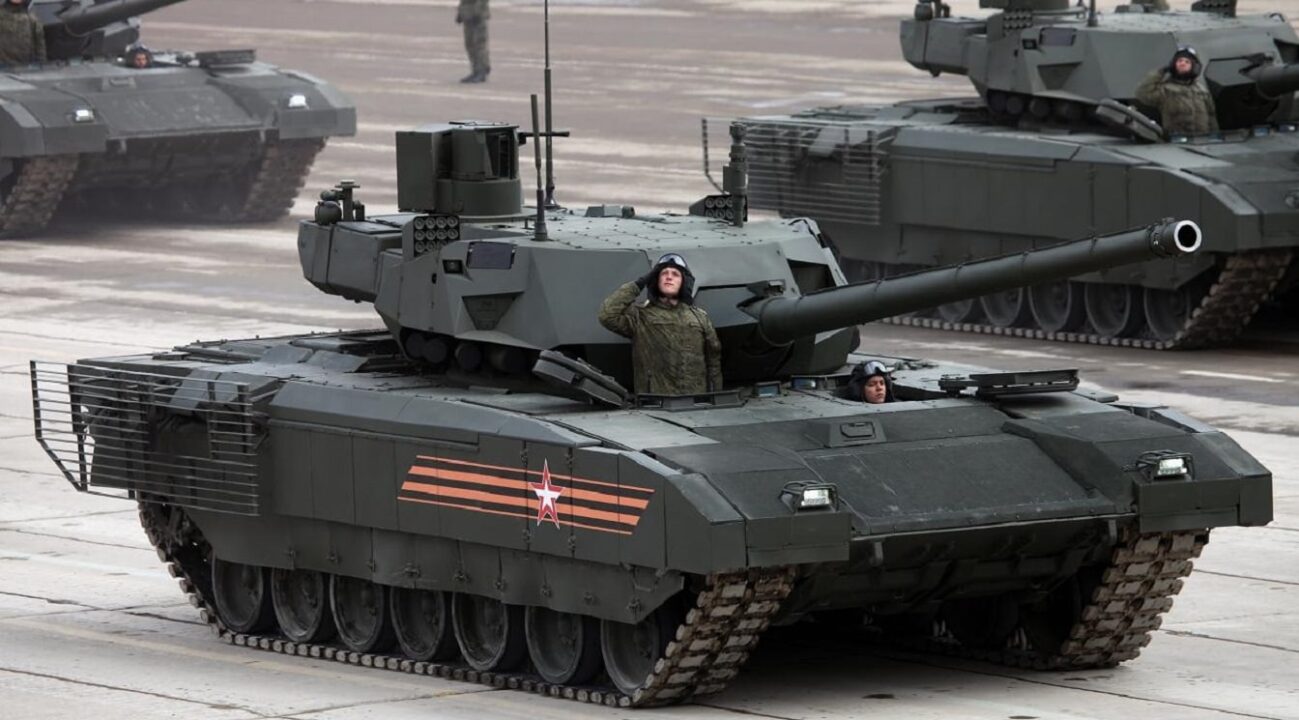Russian President Putin’s attempts to recreate the Russian empire have failed in Ukraine. Russia’s full-scale invasion dealt a serious blow to Russia’s global standing, leaving it weakened economically, isolated politically, and broken militarily while consolidating democracies and strengthening the collective West. In the span of a month, Putin’s strategic blunder and Ukrainian fierce resistance have conspired to reverse the gains that Russia had made over the much of the past three decades.
Russia’s full-scale invasion of Ukraine accomplished exactly the opposite Moscow had intended. It strengthened Ukrainian identity, consolidated NATO, unified the EU, and united all democracies worldwide to stand up to Russian aggression. The international community must use all the tools at its disposal to defend Ukraine, strengthen European democracies and liberate Russian citizens from Putin’s brutal and oppressive regime.
A World Uniting Against Russia
Moscow lost its close relationship with Kyiv when it annexed Crimea in 2014. Russia’s brutal attack on Ukraine in 2022 only strengthened Ukrainian identity and consolidated the sense of Ukrainian statehood while pushing Kyiv closer to the West.
Instead of rolling back and being divided, as Putin demanded, Russia’s military adventurism in Ukraine has united the transatlantic community, making it stronger and more attractive than ever. The imminent common insecurity not only forced NATO to beef up its military infrastructure and fighting force on its eastern flank but led the major foreign policy shifts for the militarily non-aligned Nordic states as most Finns and Swedes are becoming increasingly inclined to join the alliance.
Russia’s unprecedented aggression revitalized the European Union and brought it together in ways not seen in decades. While before the war, Brussels had ignored power politics and focused largely on economic and trade issues, the Russia-Ukraine war turned the EU into geopolitical power. The EU not only imposed crippling sanctions on Russia and increased military spending, but it has also sent military, economic, and financial aid to Ukraine while taking concrete steps to wean itself off Russian fossil fuels.
Russia’s blatant act of war against Ukraine has strengthened loose alliance and coordination among democracies across the world, isolating Russia and punishing it for its misdeeds. In the span of days and weeks, Australia, South Korea, and Taiwan, along with the G7- Canada, France, Germany, Japan, Italy, the UK, and the United States-isolated and sanctioned Russia while providing a wide range of political, military, economic, financial and humanitarian aid to Ukraine.
Not Just Nations: A World Wide Effort to Make Russia Pay
In the same vein, international organizations, multinational corporations, sports, and cultural associations followed suit. While the Council of Europe (CoE) expelled Russia from its human rights body and the UN Human Rights Council (OHCHR) suspended Russia’s membership, the ExxonMobil, Mercedes, Macdonald’s, FIFA, Formula One, the Met Opera, the Cannes Film festival and others banned, stopped or suspended their partnerships with or operations in Russia, even the International Cats Federation banned Russian cats from the international competitions.
The Western sanctions crippled Russia’s access to financial instruments and resources and its trade and investments around the world, wiping out the decades of Russia’s economic development. Consequently, the Russian economy is facing a contraction unlike any it has ever seen before. According to IIF, Russia’s gross domestic product will shrink by 15 percent only this year, while Capital Economics and Raymond James estimate inflation rise in Russia by a staggering 20 percent. Moody’s on the other hand, expects Russia soon to default on its foreign bonds for the first time in the last hundred years. These figures are set to rise dramatically as the war continues and the western sanctions take a more severe toll on the Russian people.
The Russian Military, Exposed
The Ukrainians destroyed the myth of Russian invincibility. The war laid bare the deep structural deficiencies in Russian command, control, and communication systems and the gaps in its logistics. Russia’s centralized command and control system proved ineffective against Western-trained Ukrainians who have been operating with more flexible rules of engagement, encouraging junior officers to make decisions on the spot, in the heat of the moment.
Instead of disabling the cell service in Ukraine and using their own tactical communication networks, Russians have relied heavily on local mobile networks, making them easy prey to interception and geolocation. Hence, the lack of an effective communication system has led to the unprecedented destruction of Russian tanks, armored vehicles, and military personnel. In a little over a month, according to NATO’s estimates, Russia lost up to 15.000 troops, a greater number than the soviets lost during their 9 years of war in Afghanistan in the 1980s.
The logistics have proved to be the Achilles heel for the Russians as they often struggled at setting up and sustaining supply lines. Ukrainians drew the Russian forces deeper into the country, stretched their supply lines, and heat their transportation infrastructure-trucks, railroad bridges, and supply lines- while attacking from the rear, delaying food, fuel, and ammunition for days and leaving the Russian army spearhead with limited mobility.
Surprisingly, Russians have also failed to establish air superiority over Ukraine. The Ukrainian defense systems not only have remained operational and effective in engaging and denying Russian Fighter Jets but proved exceptionally effective offensively at sea as they sank the flagship of Russia’s Black Sea fleet-Moskva, dealing a devastating blow to Moscow militarily, politically, and symbolically.

TOS-1 rocket launcher. Image Credit: Creative Commons.
Notwithstanding major military setbacks around Kyiv, Kharkiv, and other major city centers, Russia managed to make some headways in the country’s South and Southeastern fronts. The Russians seized Kherson and encircled Mariupol. By taking the city of Mariupol, Russian forces will cut off Ukrainian access to the Azov Sea, link the Crimean Peninsula to the land, and lay the groundwork for the expected attack on Odesa-a major Ukrainian port city. With Odessa in Russian hands, Moscow will cut off both Ukraine’s main economic artery and Kyiv’s access to the Black Sea, establishing a land corridor from the Donbas all the way to Moldova, where Russians claim to be facts of oppression of the Russian-speaking population, laying the foundation for an attack on Moldova.
Ukraine Needs the World’s Help
Ukrainians can’t be expected to hold out for very much longer, without greatly increased, all-around assistance. While the US and the NATO allies have provided a sizable economic, financial and military assistance to Kyiv, and the military aid package (somewhere around $6.5 billion since 2021) may be sufficient enough for Ukraine to repel the invading forces, they certainly aren’t enough to defeat the Russians. For instance, American military assistance to Ukraine pales in comparison to what the US has spent in its post-9/11 wars in the Middle East. The US spent $686 billion for Operation Enduring Freedom for Afghanistan to defeat the Taliban while allocated $815 billion for Operation Iraqi Freedom to topple Saddam Hussain’s regime. With adequate military support, Ukraine can defeat Russia.
Hence, the United States must take lead over its NATO allies and flood Ukraine with a wide range of the US-built-heavy weapons including and not limited to the long-range artillery, multiple launch rocket systems, Humvees, tanks, armored vehicles, air-defense systems, helicopters, drones, and fighter jets while restocking and encouraging the western allies to do the same. In this regard, Washington’s recent moves to form the Ukraine Contact Group-consists of 40 allied and partner nations- and to revive the world war two-era “Land-Lease “program for Ukraine are the steps in the right direction.
In parallel, the West must develop an information warfare strategy-both covert and overt-retool its media outlets and push its narrative deeper into Russia. The combination of the Cold-War technics and high-tech tactics could very well play into the hands of the collective West to penetrate Russia’s increasingly isolated information ecosystem while enabling the Russian public to leap over the internet firewall erected by Putin. The Voice of America and the Radio Free Europe/Radio Liberty-at the time the most effective media outlets-broke down the walls of the Soviet Union’s propaganda bubbles in the late 1980s, playing a significant role in the collapse of communism and the fall of the Soviet empire.
Moreover, Washington should utilize the millions of Ukrainians living in Russia and the hundreds of thousands of Russian talents trying to escape Putin’s regime in support of the U.S. policy towards Russia. While adopting proactive and offensive information campaigns, the US should fund demonstrations, rallies, protests, press op-eds, conferences, panel discussions, and educational and cultural events to reinforce the Russian public’s pro-western orientation and to encourage liberal values to take root in the country. Reagan’s National Security Decision Directives (NSDDs) and his overall response to the Soviet’s offensive policies offer useful policy solutions to rely on. By pushing in uncensored information and funding a wide range of unconventional programs President Reagan gave voice to dissidents and bolstered opposition movements in the Warsaw pact countries while undermining the faith in communism and shaking the foundations of the socialist regimes from within.

Russian T-72 tank. Image Credit: Creative Commons.
As Russians and Ukrainians dig in for the long haul and gird for the war of attrition, the extent and the sophistication of Western support for Ukraine will define the outcome of the conflict. While isolating and sanctioning the Kremlin cripples Moscow politically, economically, and financially and supplying the western-built weapons to Kyiv breaks Russia militarily, the flooding Russian public with uncensored and unfiltered information will be the key ingredient that will break Putin’s regime eventually. Winning the hearts and minds of the Soviet citizens helped the West defeat the Soviets in the Cold War and winning the hearts and minds of the Russian public will end Putin’s imperial project.
Miro Popkhadze is a Fellow at FPRI’s Eurasia Program. He was Georgian Ministry of Defense Representative to the United Nations from 2015 to 2019. Prior to this assignment, he served as the Assistant Defense Attaché at the Embassy of Georgia to the United States in Washington, DC. Popkhadze was a non-resident Fellow at the Atlantic Council of Georgia in Tbilisi. His research areas include Russian foreign policy, Eurasia security issues, and geopolitics of the Black Sea/ Caucasus region. Mr. Popkhadze holds a Master of International Policy and Practice (MIPP) from George Washington University’s Elliott School of International Affairs. He holds an MSc in Political Science from Suffolk University and a BA in International Relations from Javakhishvili Tbilisi State University in Georgia.

